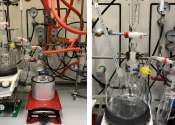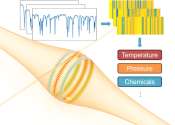Scientists discover safer alternative for an explosive reaction used for more than 100 years
The chemical industry has been using a reaction with explosive chemicals for more than 100 years—now Mülheim scientists have discovered a safer alternative. The Ritter Group of the Max Planck Institut für Kohlenforschung ...









